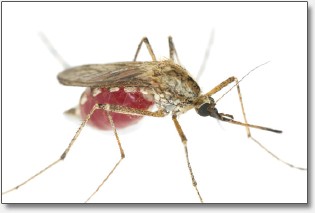Genetically Modified Mosquitos to Combat Dengue Fever in Brazil

Dengue Fever, Malaria, Chikungunya and Encephalitis are just a few of the dangerous diseases that can be transmitted via 'airborne' vectors: mosquitos. One species of mosquito in particular, Aedis aegypti is extremely adept at transmitting disease.
Dengue fever is transmitted when an Aedus aegypti mosquito bites a person infected with the disease then bites another person passing along the virus after a short incubation period. Untreated, the virus causes severe flu-like symptoms and can ultimately lead to death. At present, there are no vaccines or virus specific medications available to treat Dengue Fever.
Creating a Safer Mosquito
Scientists from the British biotech firm Oxitech, have been using a unique approach to combat mosquito borne Dengue Fever in Brazil: Genetically modified (GM) mosquitos. Here is how it works:
- Scientists cull the females and then release the GM males into the wild which then mate with Dengue Fever-carrying females and produce nonviable offspring
- The offspring die in the larval stage, reducing the population of infected mosquitos, thus reducing the number of infections
In a trial in the Brazilian city of Jacobina, Bahia, a swarm of the GM mosquitos was released into the wild. The results were astounding: within 6 months the population of dengue fever mosquitos was reduced by 79%! As a result, as on April 10th, 2014, Brazil became the first country in the world to authorize the widespread use of GM mosquitos. Other countries may be soon to follow as the Panama began testing this program in February.
As with any new solution, a level of skepticism exists. Misconceptions about the safety and efficacy of GM organisms and cost are factors detractors cite. However, with traditional methods like fumigation and insecticides having limited impact, scientists and governments have been forced to seek new solutions.
Dengue Fever affects over 390 million people in 100 countries and can be fatal. GM mosquitos reduce the need for chemicals and pesticides and have shown to be a promising piece in combating the spread of Dengue Fever. Further research could lead to this technique being employed to combat other debilitating diseases as well.
Classroom Discussion
- Could other insects or animals be used as vectors to combat disease?
- Are concerns over GM organisms warranted?

